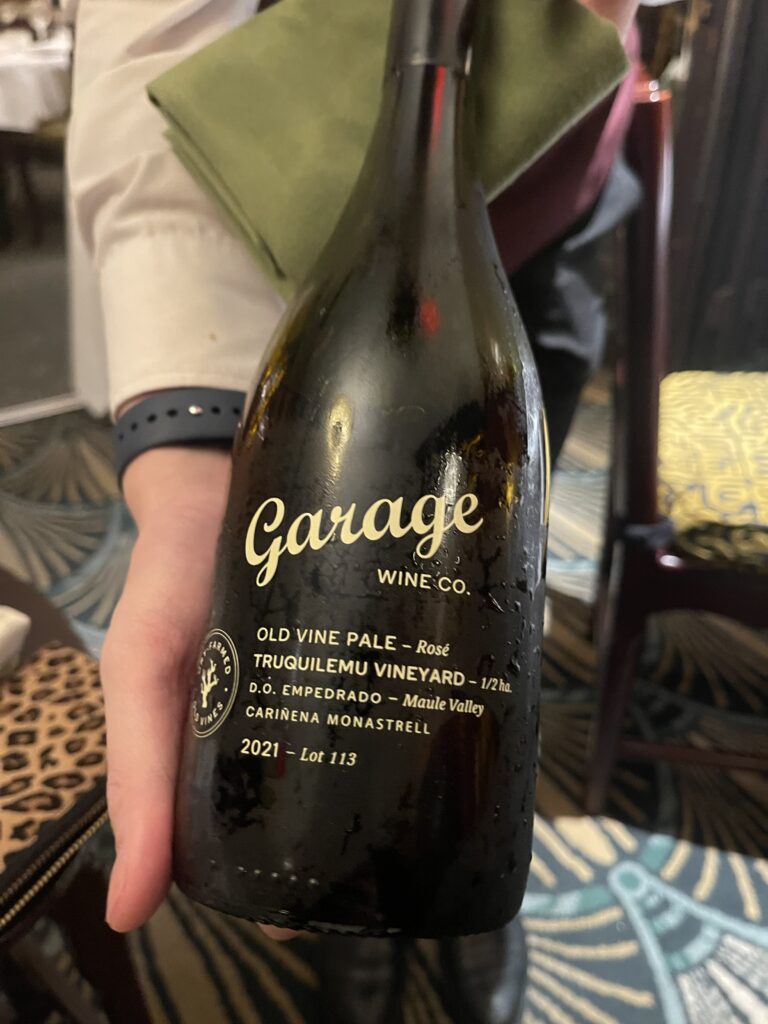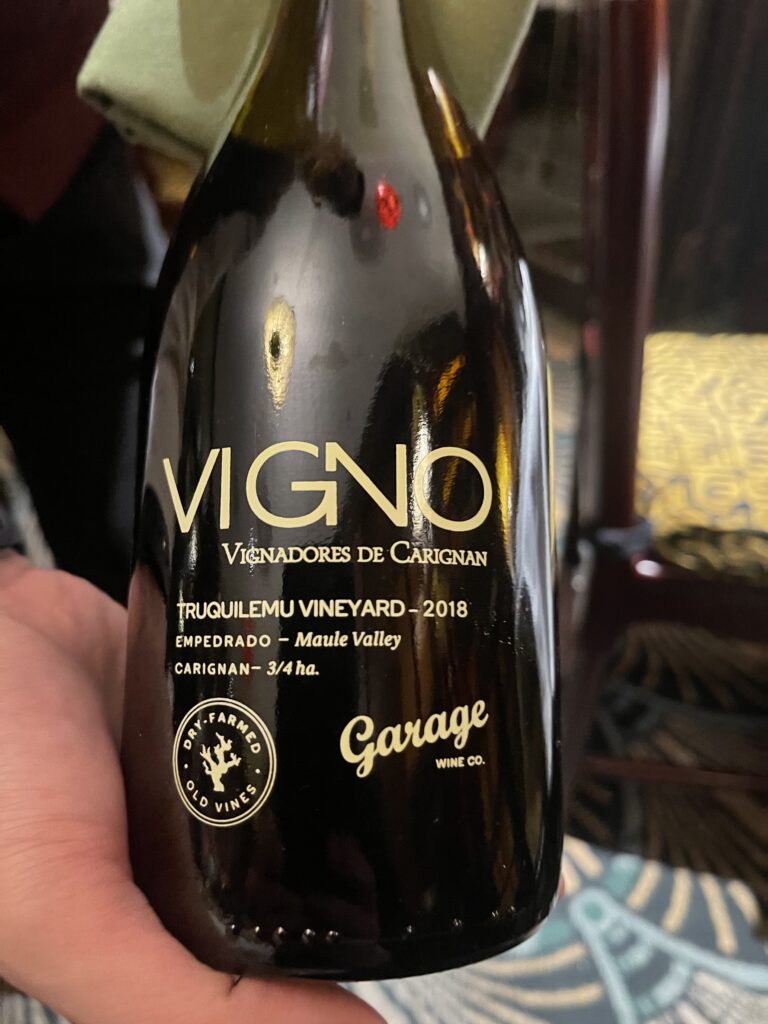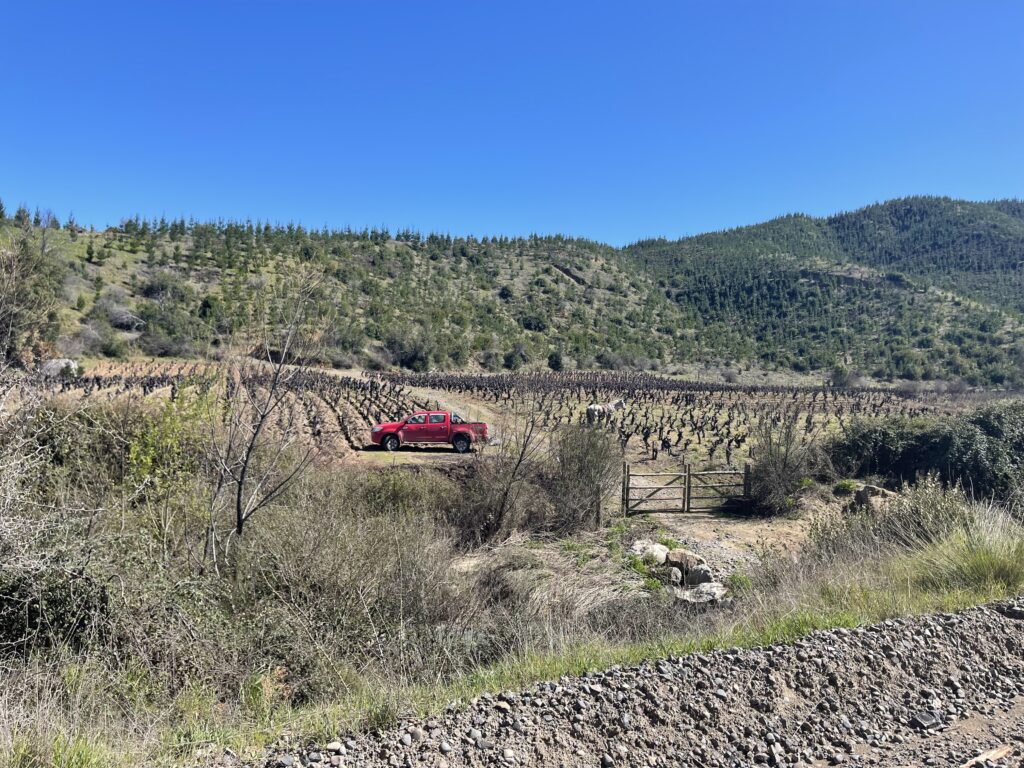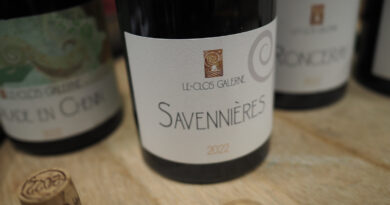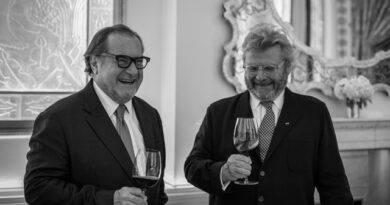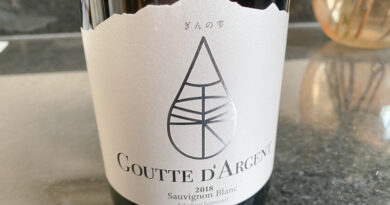MAULE: SMALL-SCALE ETHICAL PRODUCERS KEEP RURAL COMMUNITIES ALIVE WHILST MAKING SOME OF THE MOST EXCITING WINES IN LATIN AMERICA
Time to drink up, says Lisse Garnett..
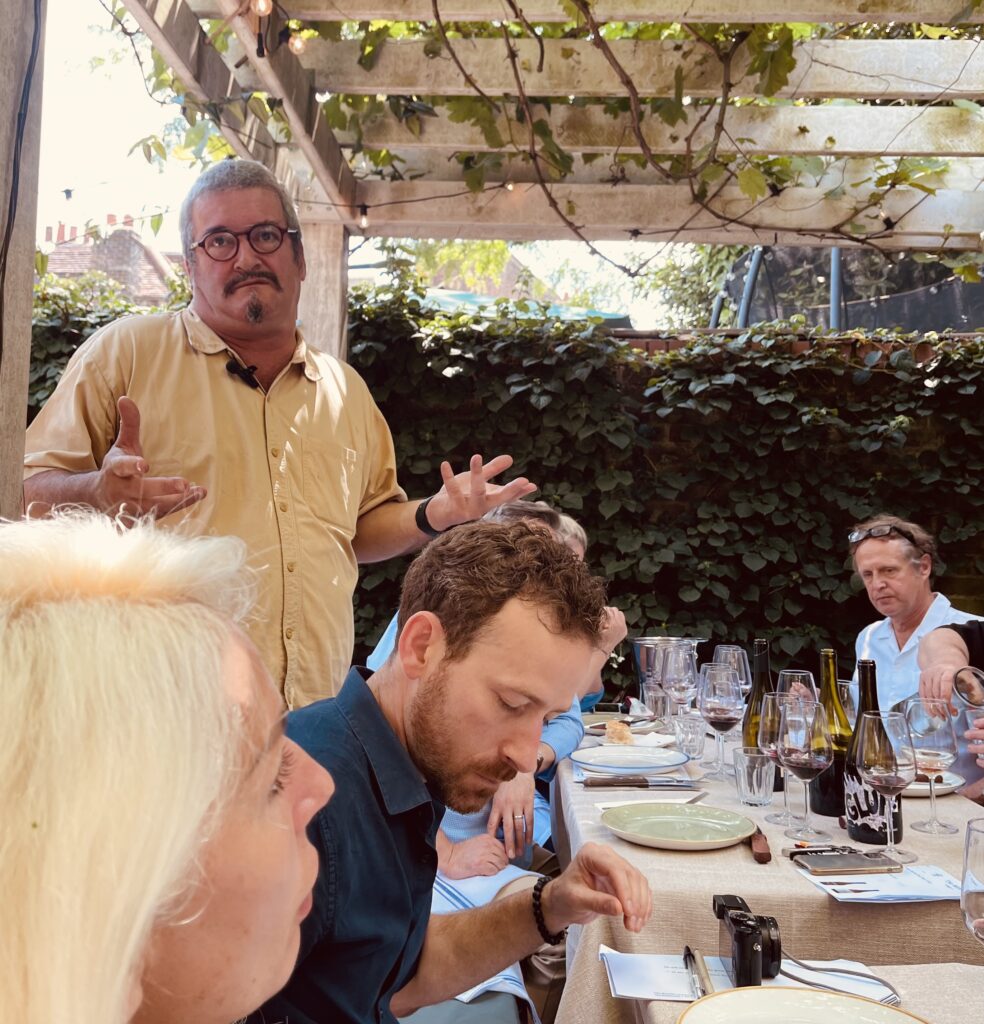
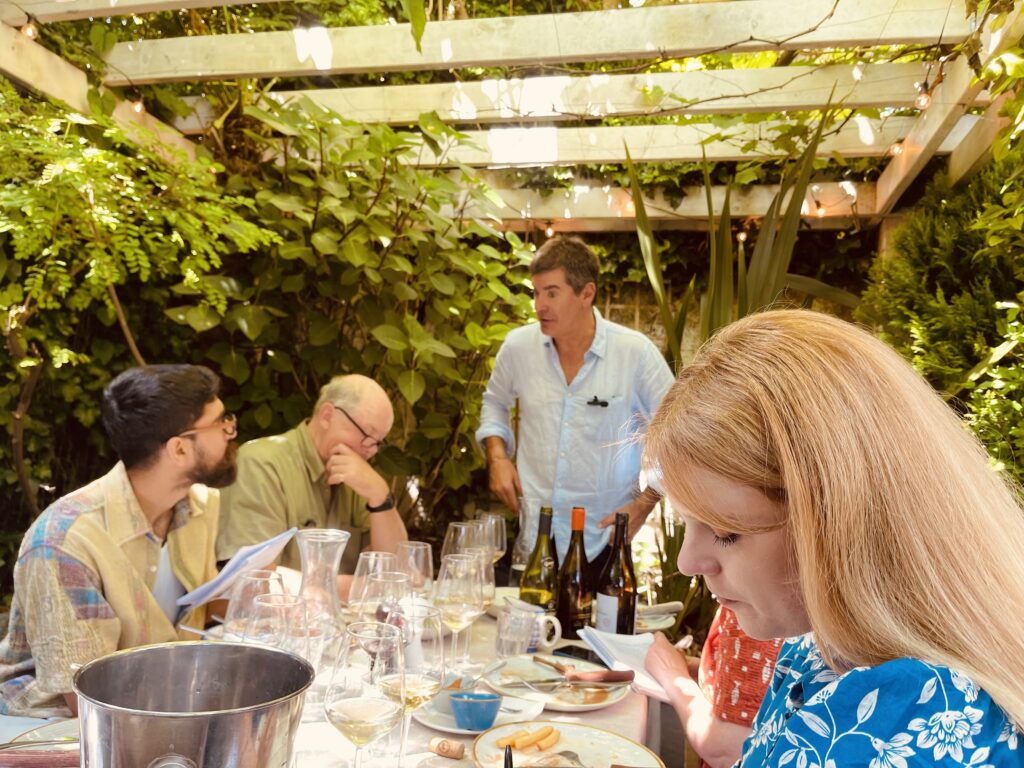
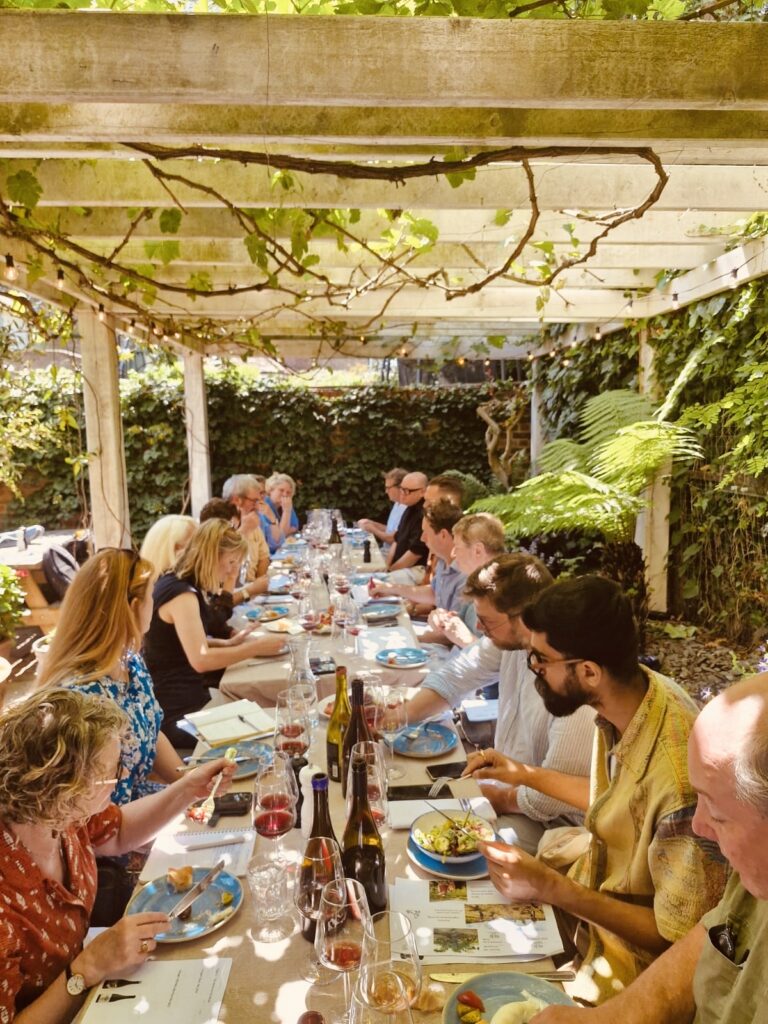
The UK drinks more Chilean wine than anyone else.
Market contractions challenge this export-dependent nation, but statistics record growth, thanks in part to the ethical collective stance taken by producers.
Chile continues to face climatic and political turmoil, but marginalised rural communities have been given a lifeline by artisanal wine producers who value old vine heritage grapes and the communities they hail from.
Garage Wine Company and Longavi are two producers who value people and place over profit; they also make thrilling wine.
There is a reason why the third and final Sideways book was set in Maule and focused on VIGNO, volcanoes, earthquakes (and sex). Chile today is an exciting place to find ethical, independent producers who’ve busted out of the straitjacket of a market addicted to large volume, cheap wine. By remaining small, farming regeneratively and buying local heritage grapes, ethical winemakers support small growers, preserve centenarian vines and revitalise stranded communities.
Colloquially known as the safest place in Latin America to do business, winemaking in Chile had for years laboured under accusations of being boring – of making well-made, large-scale, well-priced facsimiles of Bordeaux blends to order and whatever else world markets requested. This safe boring tag has become pretty ironic given the radical, iconic, small-scale artisanal wines Chile is producing today.
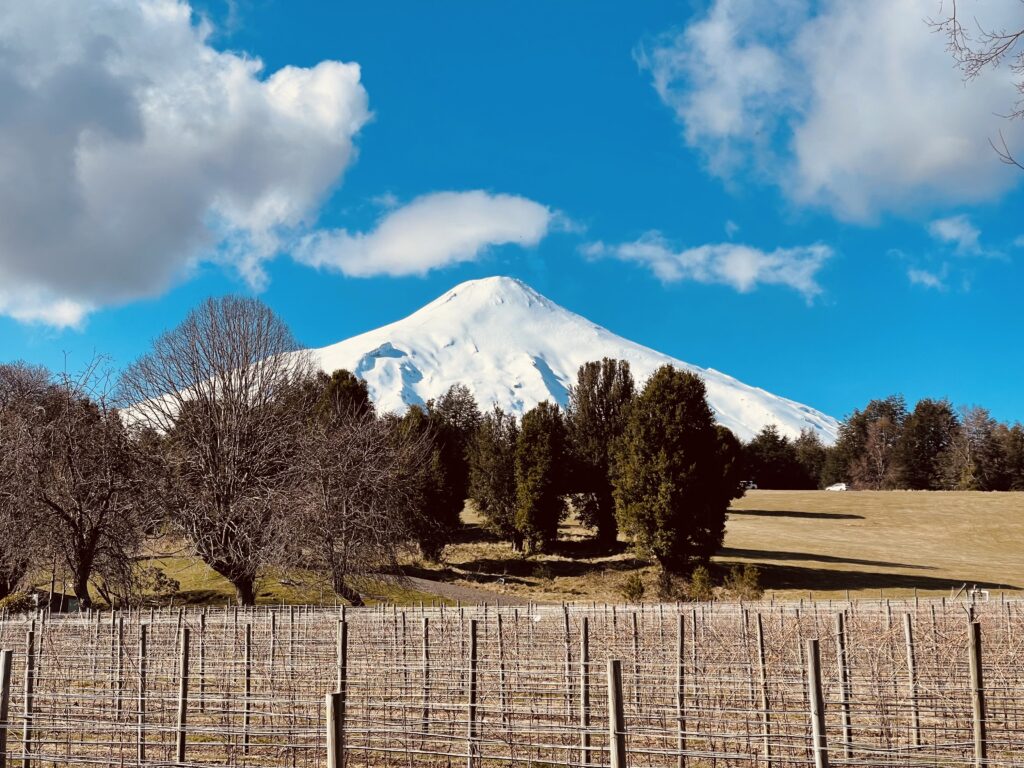
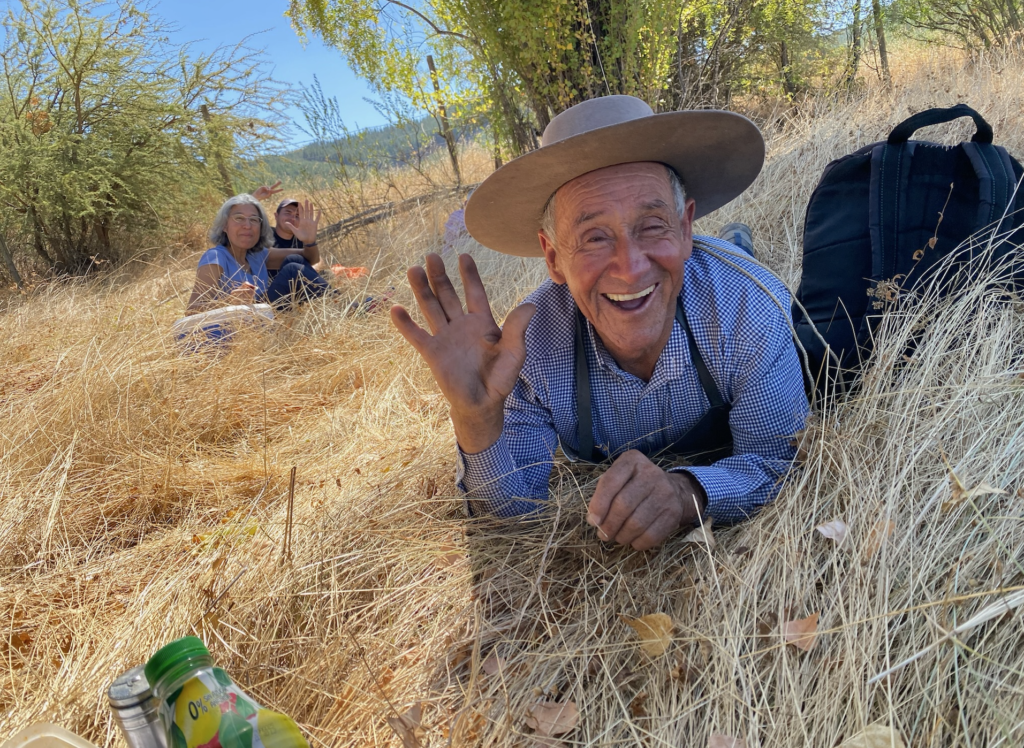

Chile has a brutal history; left-wing ideology was violently excised by the Pinochet dictatorship. Pinochet’s regime liquidated the left-wing democratically elected Marxist government of Salvador Allende and tens of thousands of others who were deemed potentially problematic.
Nixon and Kissinger, alarmed by the growth of Soviet influence and bruised by the Bay of Pigs, facilitated the coup that placed Pinochet in power. This also enabled Pinochet’s ‘Chicago Boys’ – US-educated Chilean economists – to devise a radical free market economy unlike anything South America had seen before. Reagan and Thatcher were both admirers of Chile’s economic reforms – the country was hailed as a safe place to do business.
In 1988, when Pinochet was on the way out, Steve Daniel, now the Head Buyer at Hallgarten, then with Oddbins, was one of the first UK exporters to see the potential in the Chilean market. He describes a country fraught with violence and danger..
“Santiago International Airport was a shack in those days, and you had to find someone in the street who looked suitably dodgy to change money. I remember the first hotel I stayed in, in the centre of Santiago, was on the news because an arms dealer had been assassinated there.”
Cliff Roberson of Roberson Wine began exporting Chilean wine into the UK in 1990, striking wine gold in the process. I asked him to describe the Chile he encountered back then..
“When I first visited Chile just before Pinochet was ousted, it was like a 3rd world country, there was fighting in the streets, political unrest and very few hotels. I was working with San Pedro, who had never exported at this point. It was 1990, and we were doing ok, the first year we sold about 20k cases.
Then three incredible things happened – San Pedro built a new winery with Jacques Lurton at the helm, and Pinochet went – the world embraced Chilean wine, much as they had South African wine when Mandela was released.
We did about 40% of San Pedro’s business at that point, and things took off. In total, we sold over 40 million bottles in the UK market. Supermarkets were our main buyers, the likes of Safeway, Asda, Sainsburys and Marks and Spencer all bought big.”
CHILE TODAY
Chile was once known for being safe and boring – pretty ironic given the radical, iconic, small-scale artisanal wines Chile is producing today.
Widespread recent political reform aimed at cooling complex social tensions has not resulted in a new Chilean constitution to replace the Pinochet era model, which, though fine-tuned, is still in use today. A general election is imminent, and a recent win by Communist candidate Jeanette Jara at the Primaries seems to indicate that results may be polarised.
The Chilean economy grew by 2.6% last year and is set to grow again by 2% this year. The UK is now the largest consumer of Chilean wine, having recently overtaken China and the US.
Thanks perhaps to premiumisation, wines with a sense of place and environmentally conscious production methods, the Chilean export market appears to be growing despite huge global challenges. Chileans are drinking more wine too.
MIGHTY OAKS FROM LITTLE ACORNS GROW.. GARAGE WINE CO
Canadian Derek Mossman Knapp came to Chile to work a summer whilst at university, but he fell madly in love with Pilar Miranda, a Chilean who also happened to be a brilliantly talented winemaker.
Derek and Pilar Mossman Knapp are true Garagistas. In 2006, after creating half a dozen vintages of home-made wine, they began exporting to the UK & Denmark. This they did as founder members of MOVI, the now famous Chilean wine collective that was initiated to enable small producers of around 5000 bottles to work together and forge a louder voice.
Today, Garage Wine Co exports to 26 countries. They are the recipients of numerous accolades, market-leading scores (see below) and awards for their groundbreakingly maverick, organic, beautifully labelled natural wines.
Derek explains why he and his wife kept on marching forward despite the numerous obstacles and very near misses they encountered along the way..
“Every time things got tough, and we felt like giving up, something would happen that was like a sign that made us feel we should carry on. This happened when we met the like-minded small producers with whom we formed MOVI, it also happened after the wildfires and during COVID.”
“We had to forge a different path. Small and nimble, we quickly became masters of the workaround. When we did not meet the minimum label order, we learned to silk-screen bottles. When tank makers were not interested in building small open-top lagars, we welded our own from repurposed stainless steel. But the greatest advantage for us was learning from small vignerons. Instead of contracting out, we gathered skills and hands, we trained inward; and we really enjoy teaching the next generation. Farming work helped us to create a different kind of company.”
Today, Garage Wine Co exports to 23 countries, and they are the recipients of many accolades.
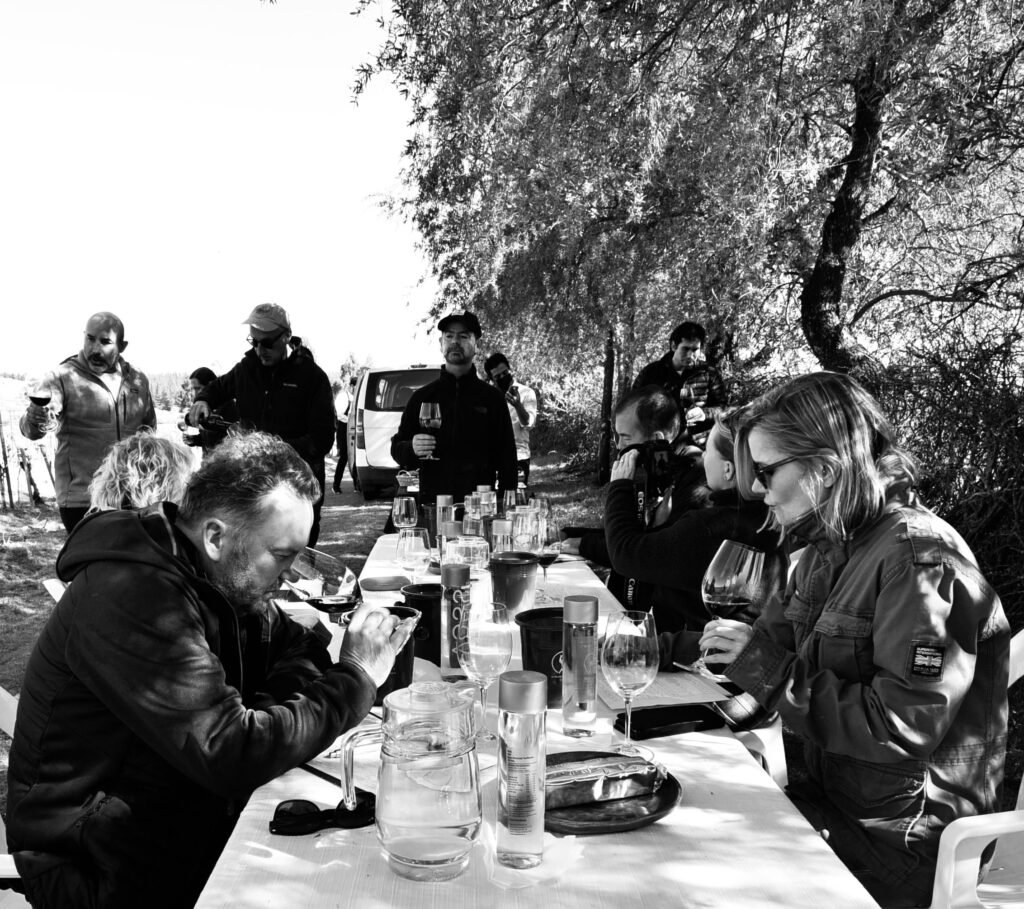
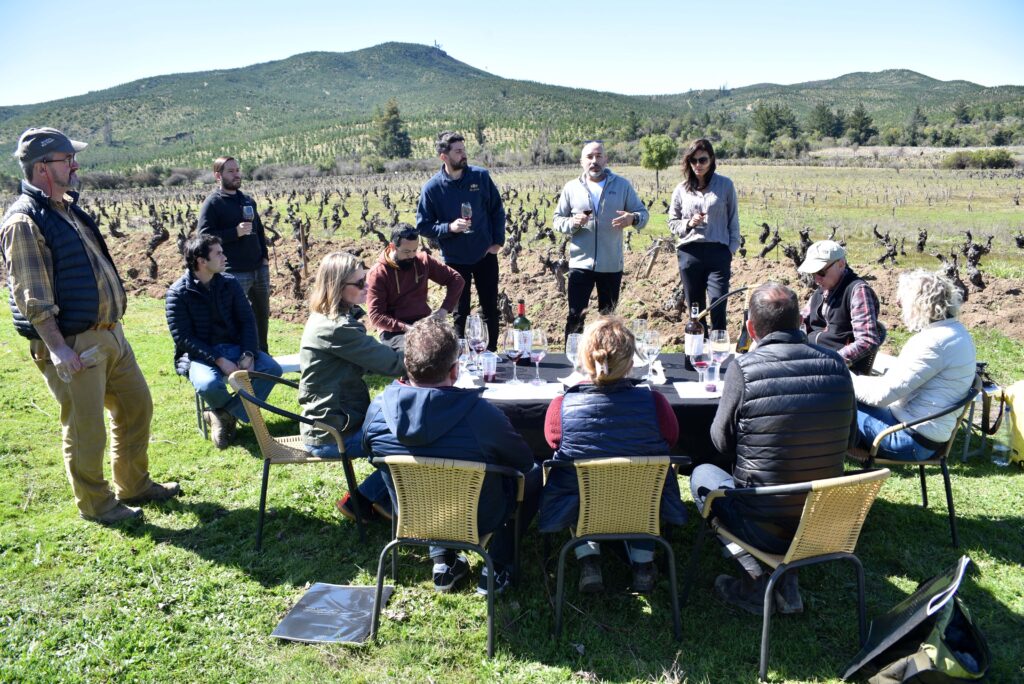
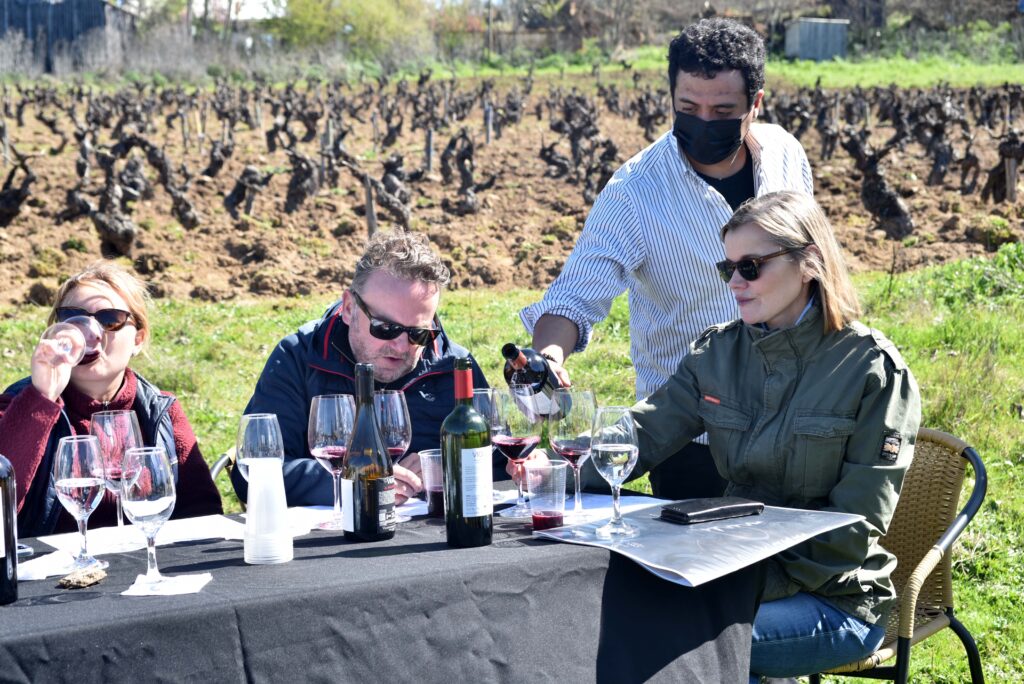
Derek and Pilar are also founding members of the famed VIGNO collective in Maule, and Julio Bouchon of Longavi captains the VIGNO ship. VIGNO was formed in 2010 when a group of winemakers began to recognise the exceptional quality of Carignan from local dry-farmed vineyards.
It was earthquakes that seeded Carignan in Chile. Thousands died when huge quakes rocked Maule in 1938. This poor region was already populated by subsistence farmers, barely scratching a living from the land. The Chilean government sponsored Carignan plantings to support starving farmers and to bolster the local Pais (seen as thin and low quality). This was considered a viable long-term solution to the farming crisis.
Carignan – ubiquitous about the Languedoc before the great EU-sponsored vine pull scheme, was the mainstay of cheap bulk wine production in France’s industrial north (See An Ode to Carignan). Much of it bitter and foul, it was rumoured to be the principal component of the EU wine lake. Carignan, though high yielding when young (up to 11 tonnes an acre), is susceptible to mildew and rot and late to ripen, which led to many vines in Chile being abandoned, whilst Pais needed as few as 2 costly preventative treatments a year, Carignan needs 7-8.
Today, however, these now ancient vines are yielding treasure. Having survived with little intervention, old bush-trained Carignan can produce luscious, velvety, voluptuous wines of quality, depth, elegance and complexity.
Earthquakes hit Maule again in 2010, the year VIGNO was formed. This made the collective more determined than ever to preserve old Carignan vines, raise prices for the grapes and form an appellation. They have managed this with some success. Many of the wines have become well-recognised brands both in the UK and the US, and that’s all down to VIGNO.
70% of any VIGNO labelled wine must be old vine bush-trained Carignan and see two years of ageing. It must also display the VIGNO branding in letters larger than those of the producer on the label.
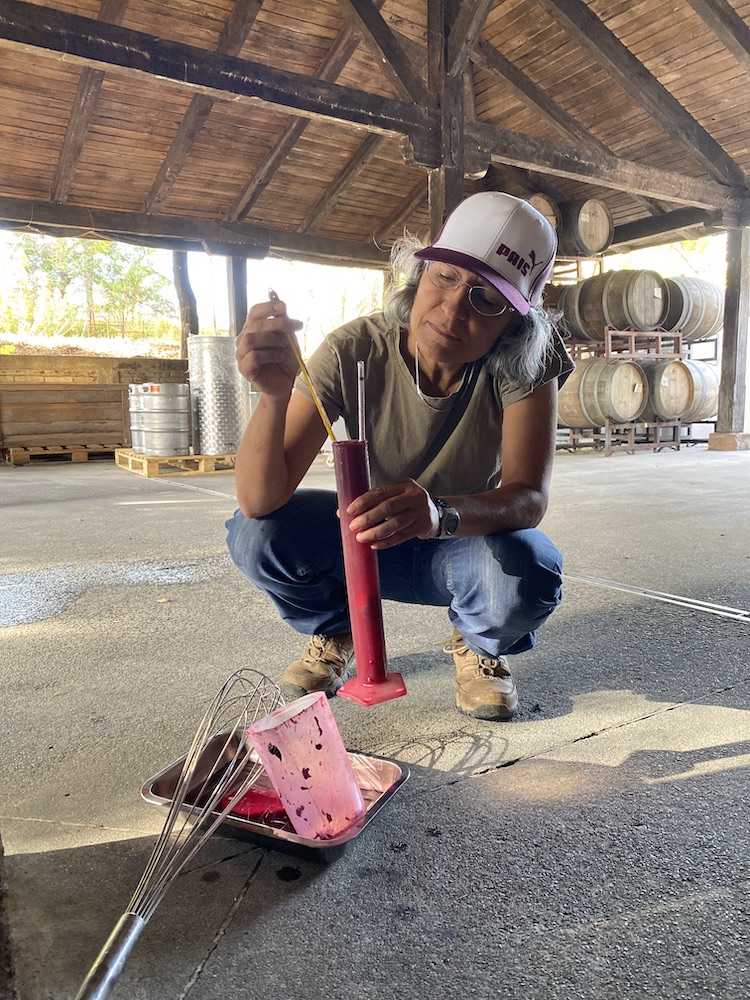
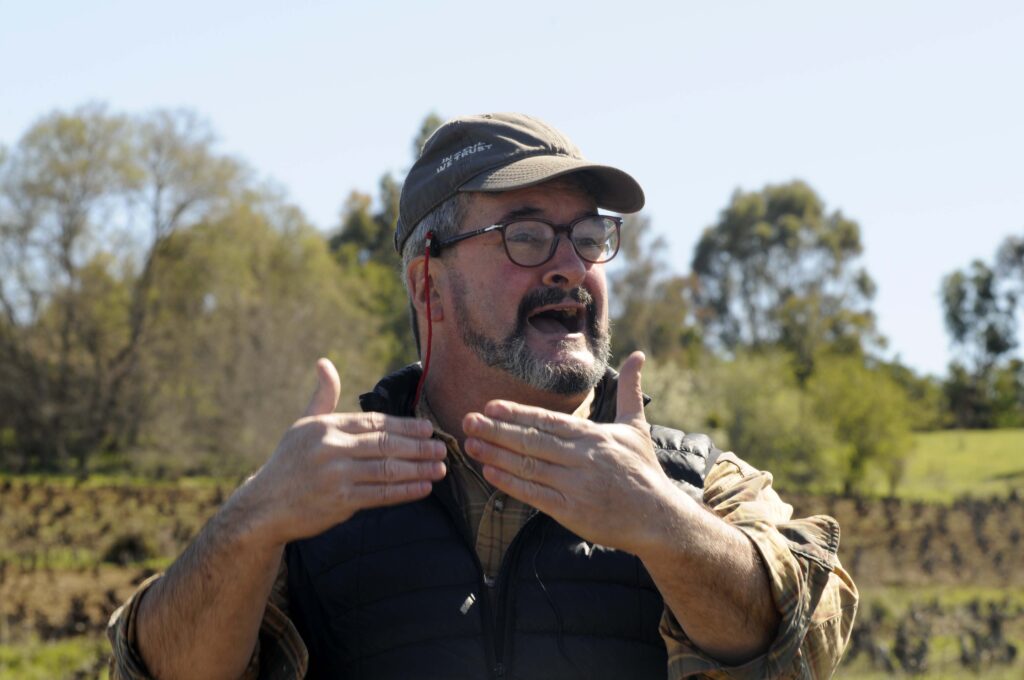
Back to Garage..
Garage Wine Co makes wines from many tiny parcels that are owned by modest smallholders in Maule and Itata. Dry-farmed field-blends of Carignan, Garnacha, Monastrell, País, Cinsault and Cab Franc, grown on pre-phylloxera rootstock – often dating back over a hundred years – are the mainstay of the label. Their vineyard workers are trained in the old ways. They work with horse and plough and use pruning techniques that have been honed for generations. Derek enlightens..
“The Maule farmers are closer to the traditions and way of life from years ago. As well as working with grapes, they grow a wide range of vegetables that ripen at different times of the year, and they keep their own animals. That way, they are pretty much self-sufficient and don’t rely entirely on their grapes.”
“I think it is fascinating that the farmers wait for the waning moon before pruning, having no inkling what biodynamics is or who Steiner was. They are citizens of the Earth. It has been fascinating to better understand their approach to agriculture. They can teach us so much.”
“You have to toil with the land here. The local community are in tune with the land – what they are growing and eating matches the seasons of the year. They live on the land, by the land and for the land.”
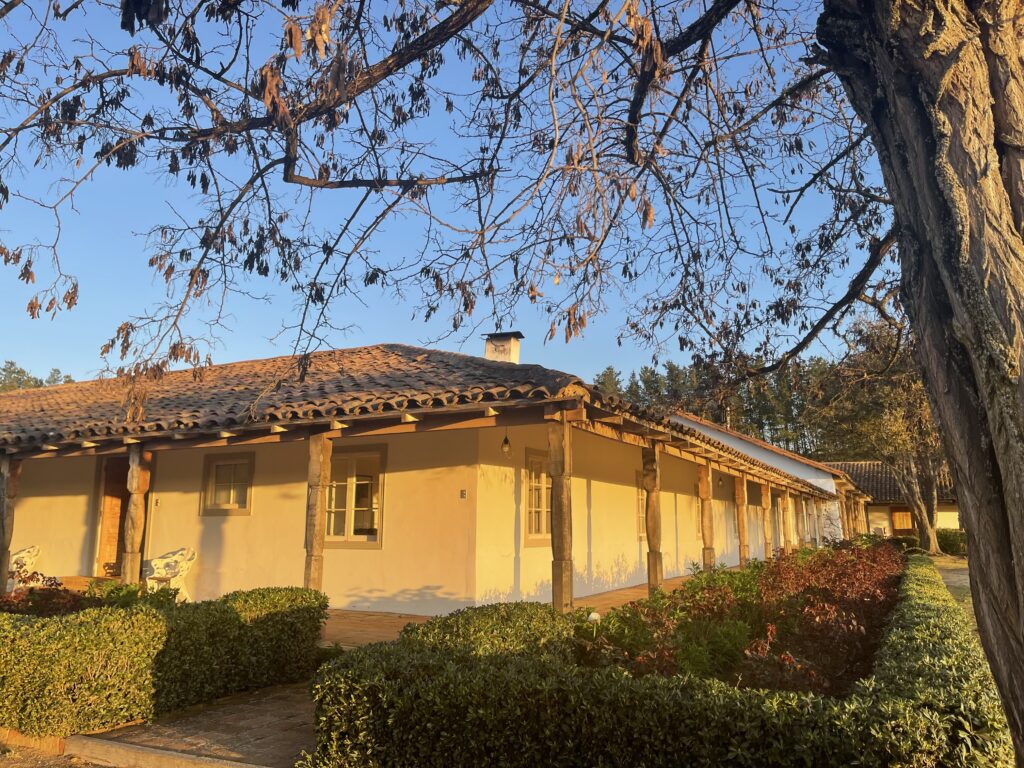
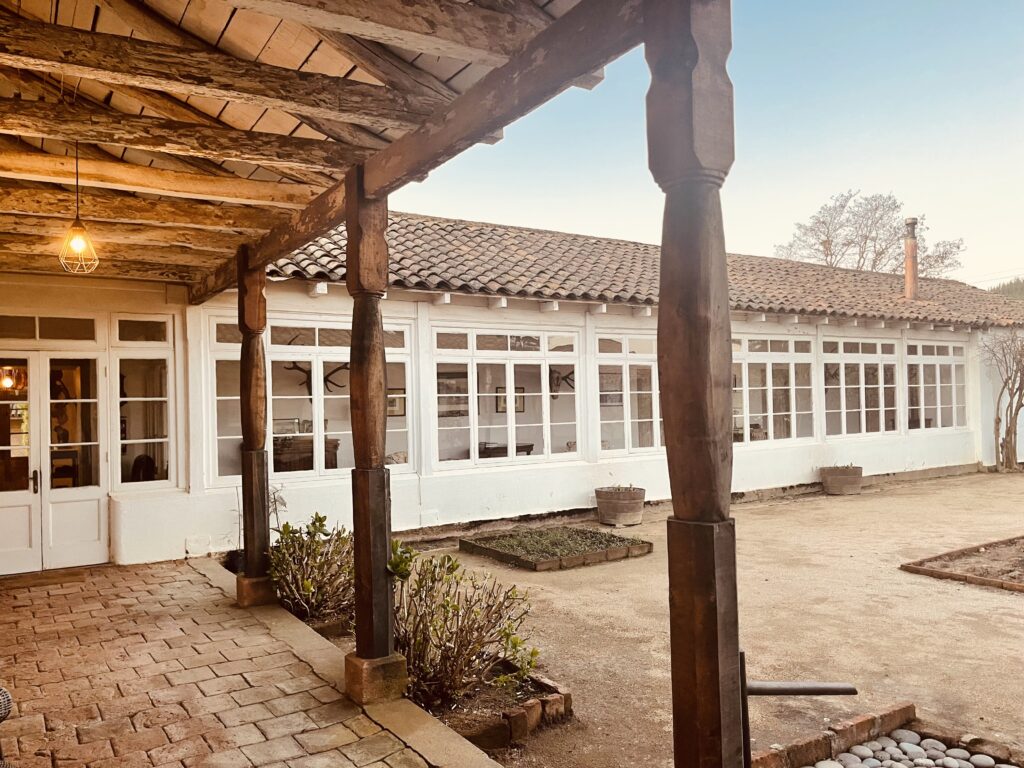
LONGAVI
Longavi is a label with two Chileans and a Saffer at the helm and copious Gold medals under their belts. Julio Bouchon, Christian Sepúlveda and David Nieuwoudt partnered up to produce wine from vines grafted onto the roots of dry-farmed octogenarian Pais. Today, their range represents the entire palate of Chile’s patrimonial grapes. Sepúlveda explains..
“The Longavi project consists of making partnerships with the owners, who are the ones who keep these vines alive. Pais, for example, was generally sold at very low prices. About 10 years ago, 1kg was sold for 10 cents in euros. As a result of this project, which also incorporates another variety on the old vines, the grapes are now sold for between 1 and 1.5 euros a kilo.”
Patrimonial is a term used to describe indigenous varieties and naturally occurring distinctive local grape crossings (Criollas) or long-established often old vine varieties that may have originated in pre-phylloxera Europe.
Christian Sepúlveda, a skilled and now internationally lauded viticulturist and winemaker, is unafraid of using ancient grafting techniques; he is also a fan of flor ageing, amphora and concrete in the winery.
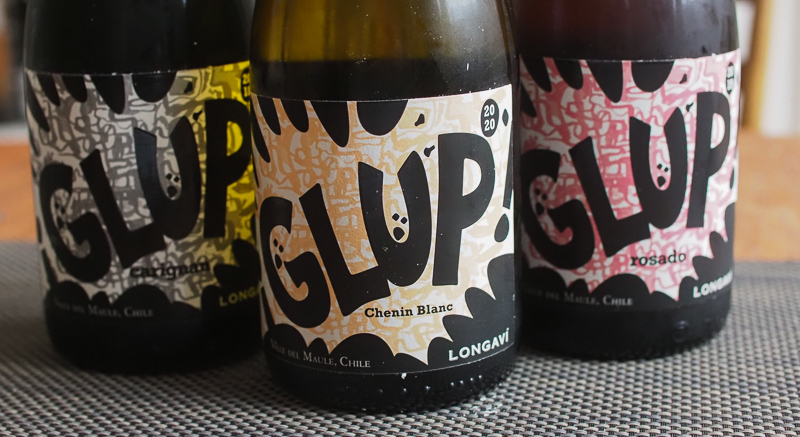
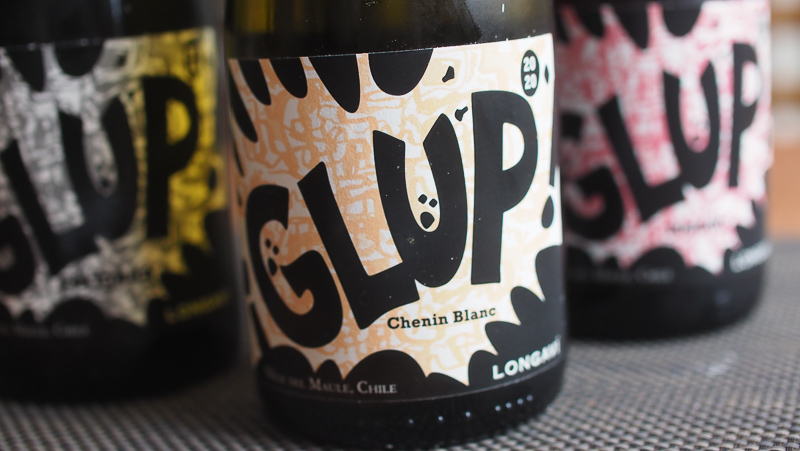
Longavi wines have been quietly storming the wine world’s supply of gold medals since 2012. Longaví Reforma Rosé was named rosé of the year by Tim Atkin in his 2024 Chilean Wine Report, and Longaví Glup Cinsault, Itata Valley 2021 was awarded a Platinum medal by Decanter. They don’t spend money on marketing, but Julio Bouchon (eloquent, unpretentious, statuesque and cultured) is a great ambassador for Chile, and he puts in the miles. I first met him working at a stand at the London Wine Fair in 2015. He is an extremely down-to-earth and personable exponent for Chilean wine, someone who has tasted broadly and understands world markets. The wines he makes are unique – there is so much to love, and they are extremely affordable.
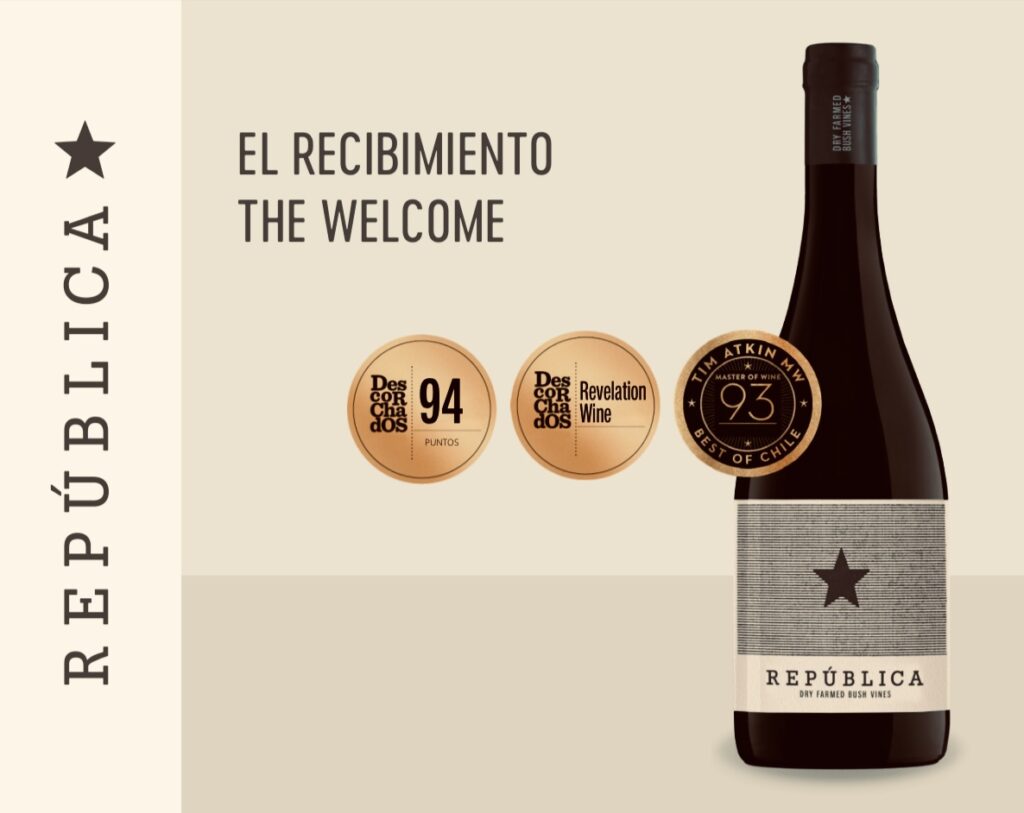
Their latest addition, República, is an organic blend of dry farmed Carignan, Grenache, and Monastrell grafted onto ancient País bush vines grown on decomposed granite. A zippy, fresh, vibrant wine is the most excellent result. This technique has been lauded for fantastic varietal expression as well as resistance to climate change thanks to established roots. Organic viticulture enhances organoleptic expression, and a wild ferment in cement produces textural interest. This wine should be available in the UK shortly.
Julio and David were born in the same year to multigenerational, long-established wine families – Bouchon Family Wines and Cederberg. These two old friends from different continents met when Julio’s father, Don Julio, took a shine to David’s Sauvignon at the London Wine Fair, practically drinking his stand dry. Today, they are thinking local, producing wine from old vines, utilising local labour and leasing long forgotten vineyards to breathe life into lost communities.
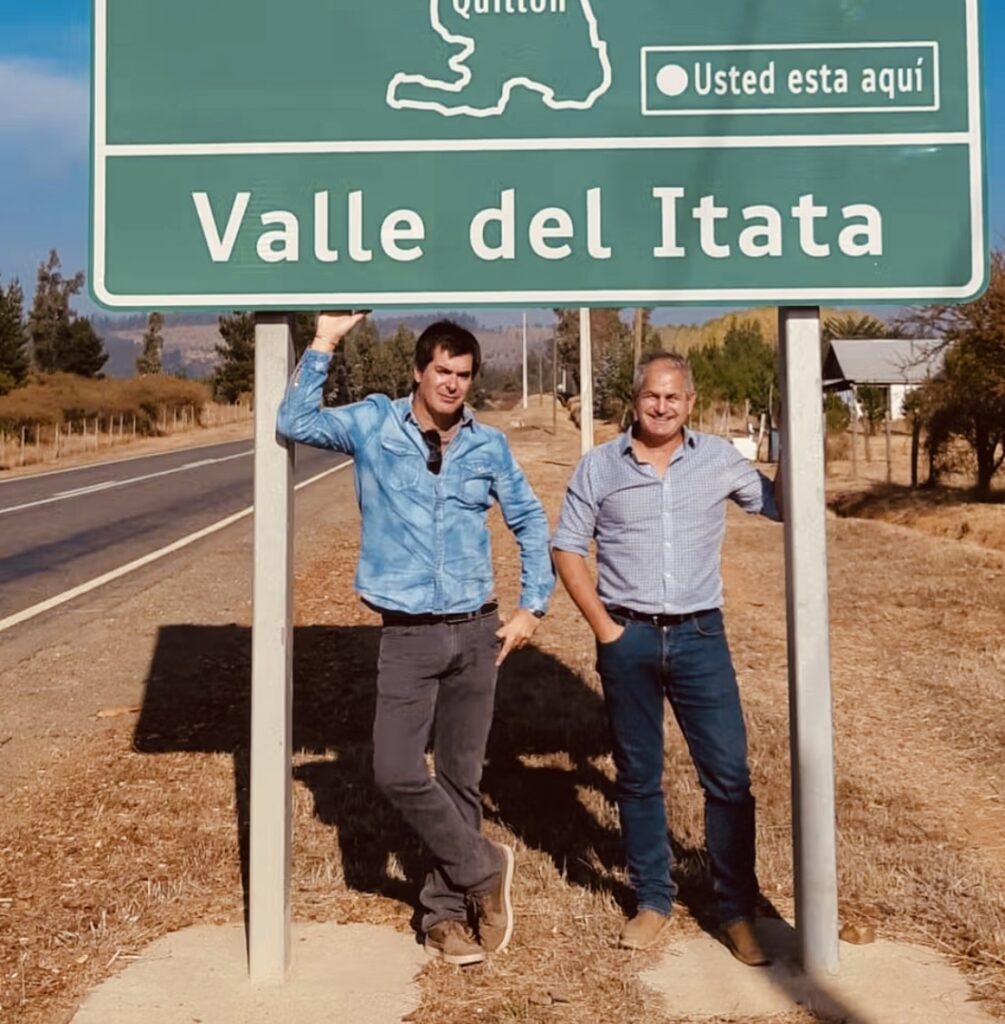
David Nieuwoudt
Julio Bouchon explains, “The Chilean way was traditionally about volume – you don’t ask a Chilean how many pallets or bottles he exports but how many containers. It was very successful, but we wanted a more organic feel and hands-off winemaking. We wanted to make minimum intervention smart wines, wines that are technically correct and show a sense of place. The idea behind this project is to produce hands-off wines from ancient vineyards down in the south of Chile. We strive to preserve these vineyards by trying to get long-term contracts, to push the boundaries and start making wine as they were doing 8000 years ago in Georgia.”
Visiting Chile over time, the changes to rural lives through wine are apparent. The first time I visited, I saw people in the vineyard wearing homemade shoes; today, the same people are putting their children through college.
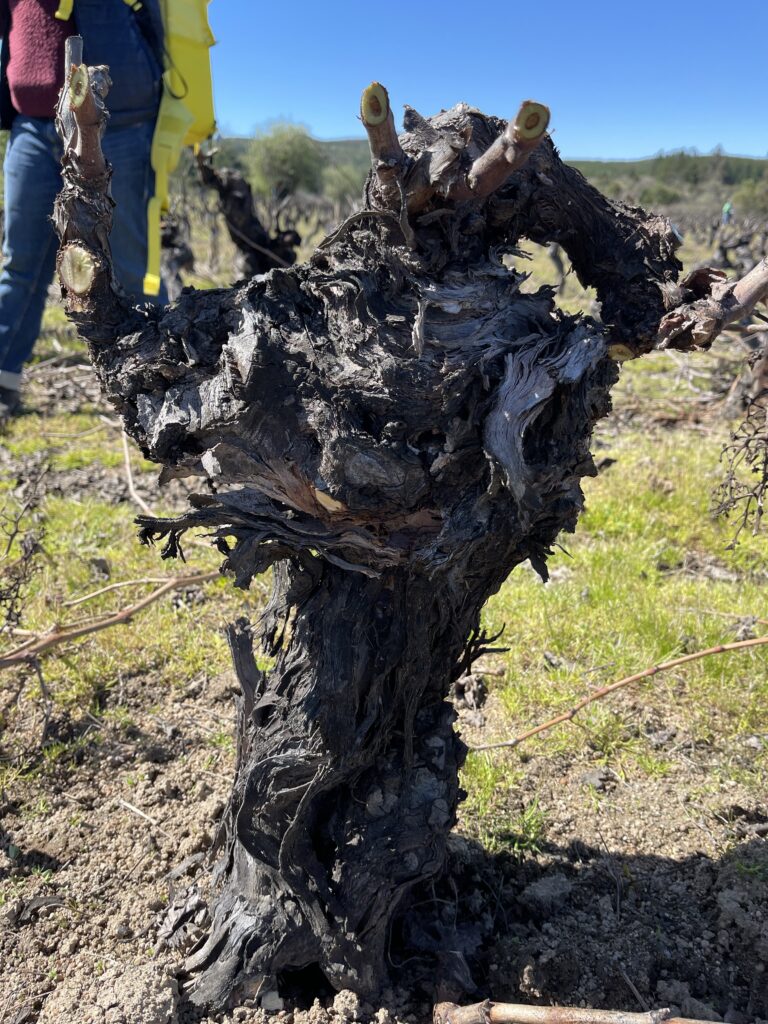
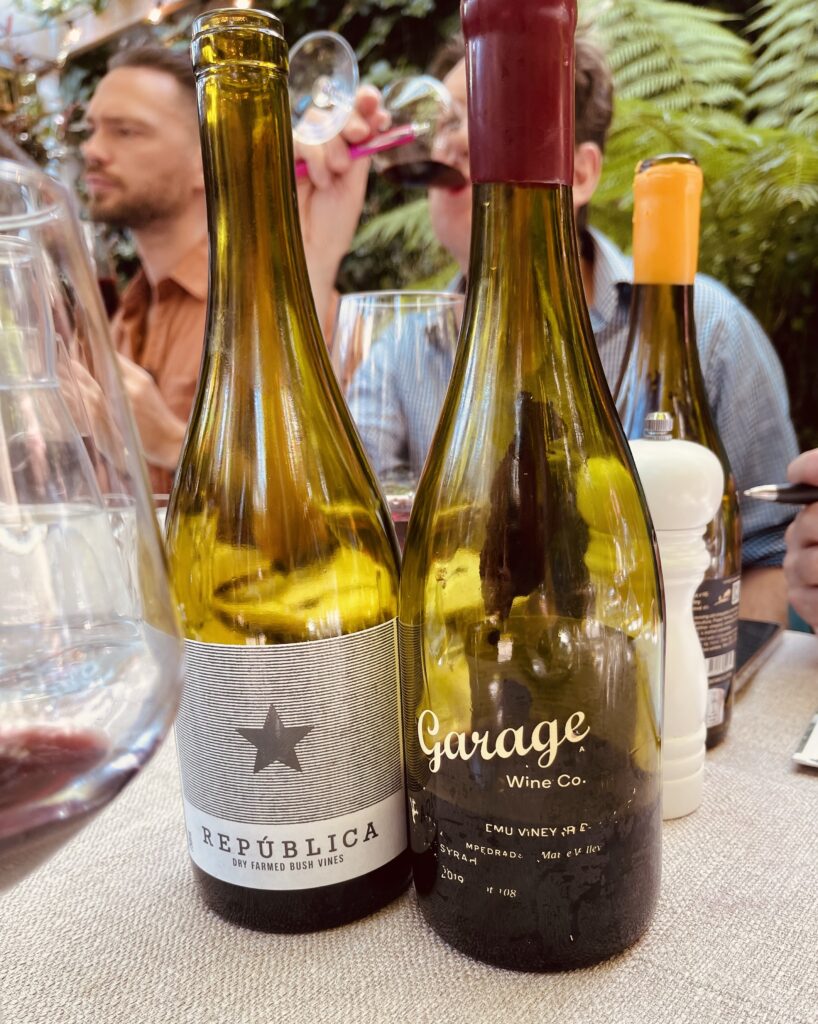
THE WINES
LONGAVI
Longaví Cementario Chenin Blanc 2021 Maule, Chile 13.5% alcohol. Sourced from 1.2 hectares of Chenin Blanc top-grafted onto octaganarian País vines, fermented in old barrels using wild yeast, and aged for 12 months. Complex, fresh, textured and layered with candied lemon, lime, pear and camomile, crushed herbs and savoury thyme. Extended lees contact brings an unctuous yeasty lanolin layered richness. The wine is taut, structured, mineralic, spicy and so long. Incredible. 95
Longavi Glup Carignan 2021, Maule, Chile Alcohol 13.5%. 97% Carignan and 3% Garnacha. This gold medal-winning delicately floral, fragrant beauty is redolent with raspberries and cherries, layered with herbs and savoury hints of roasted ratatouille. A lithe structure and firm tannins make this an eminently quaffable sublime sup of graceful proportions. 93
£14.30 Vinum
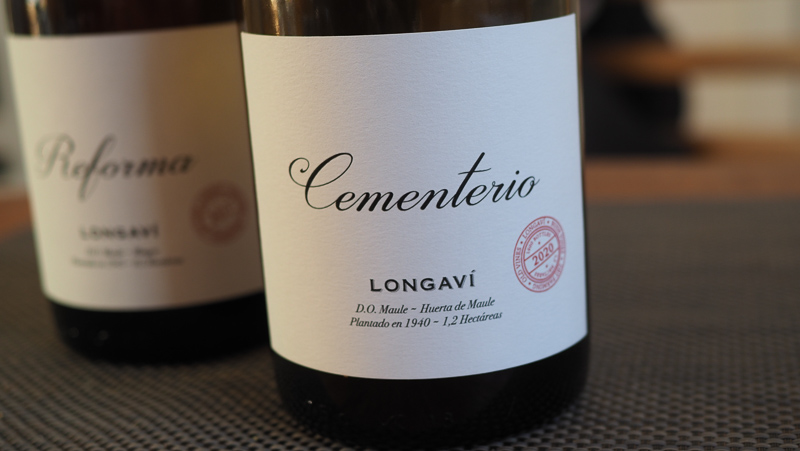
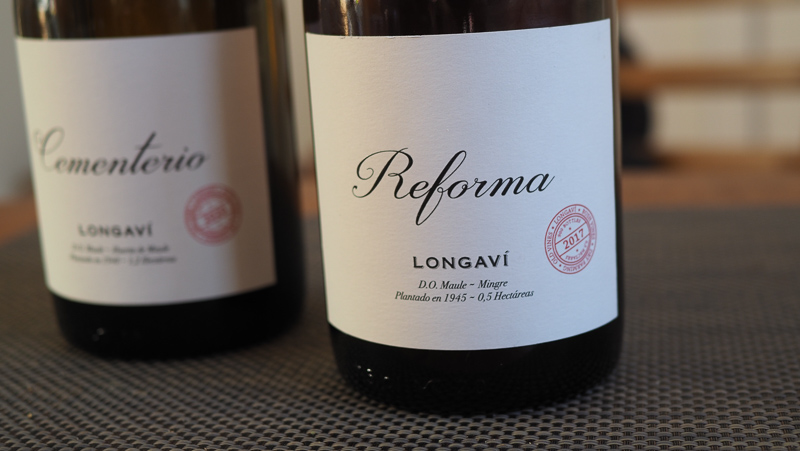
Longaví Reforma Rosé Maule, Chile 2017
12.5% alcohol. Made from 0.5 hectares of old País vines grafted with Grenache. An unbelievable four years in barrel, twelve months under flor, two years with controlled oxidation, for the last year, the barrels were topped up. It’s a magnificent Californian sunset, peony pink and orange colour – so rare in a rosé, and it has so much texture. It’s tangy, salty, pithy and sublimely fruity – I taste strawberries, cherries, plums, pears and even bitter orange marmalade. Bright and fresh with a sour, savoury, golden shag complexity that only adds to the moreish delight of this magnificent drink. A Chilean take on López de Heredia’s Viña Tondonia Rosado, I love this wine, if you can find it, buy it. 95
Longavi Glup Chenin Blanc 2020, Maule, Chile
13% alcohol. This is fermented in 700-litre amphorae on skins, then aged for 6 months without skins in the same amphora. Stony, fresh, luminously pure and mineralic (!), there is a delicious freshness about this wine – a lemony, minty pear pear-hued salty, layered, gorgeousness. Absolutely delicious. 93
£14.33 each for 6, The Fine Wine Co, Edinburgh
Longavi Glup Naranjo 2022 Itata, Chile
13% alcohol. 100% Moscatel. Steeply sloped parcel, 60-year-old vines, granitic soils. Six months on skins in concrete tanks, then 4 months in old French barrels, manifest in a wine of intense character. Tangy, pithy, intensely floral and rich in supple fruit with deliciously enticing tannins that make you want more. Think grape cut with bitter orange and succulent salty mango with a touch of mint. 93
£14.30 Vinum
Longavi Glup Rosado 2022, Maule, Chile
This comes from centenarian bush vines of Grenache, Mourvèdre and Pais grown on ancient, decomposed granite. Fermented in stainless steel, then aged for 8 months in used French oak. Fresh, fine, elegant and gorgeously floral. Cherries and cranberries meet fragrant savoury thyme. Fresh and engaging, this rosé was awarded a Silver Medal by Decanter. 92
£14.30 Vinum
Longavi Glup País 2021 Secano Interior, Bio Bio, Chile
12.5% alcohol. From 100+ year old vines near the Bio Bio river. Fermented in open tanks, then aged in old barrels. Vibrant, supple, bright and fresh with juicy cherries, blackberries and raspberries and the scent of dried thyme and rosemary. A lovely light, enjoyable drink somewhere between a fruity Gamay and a Pinot Noir. 92
£14.30 Vinum
Longavi Glup Cinsault 2021 Itata, Chile
12.5% alcohol. Decanter Platinum Medal-winning wine. Fermented in concrete and aged in foudre. Textured fine fragrant peppery sup redolent with redcurrants, plums, sweet cherries and berries. Pure and mineralic with a touch of salinity and a slight saltiness under the sleek fruit, tannins are gorgeously fine-grained. Sublime. 95
Stock currently on the continent only, UK delivery imminent.
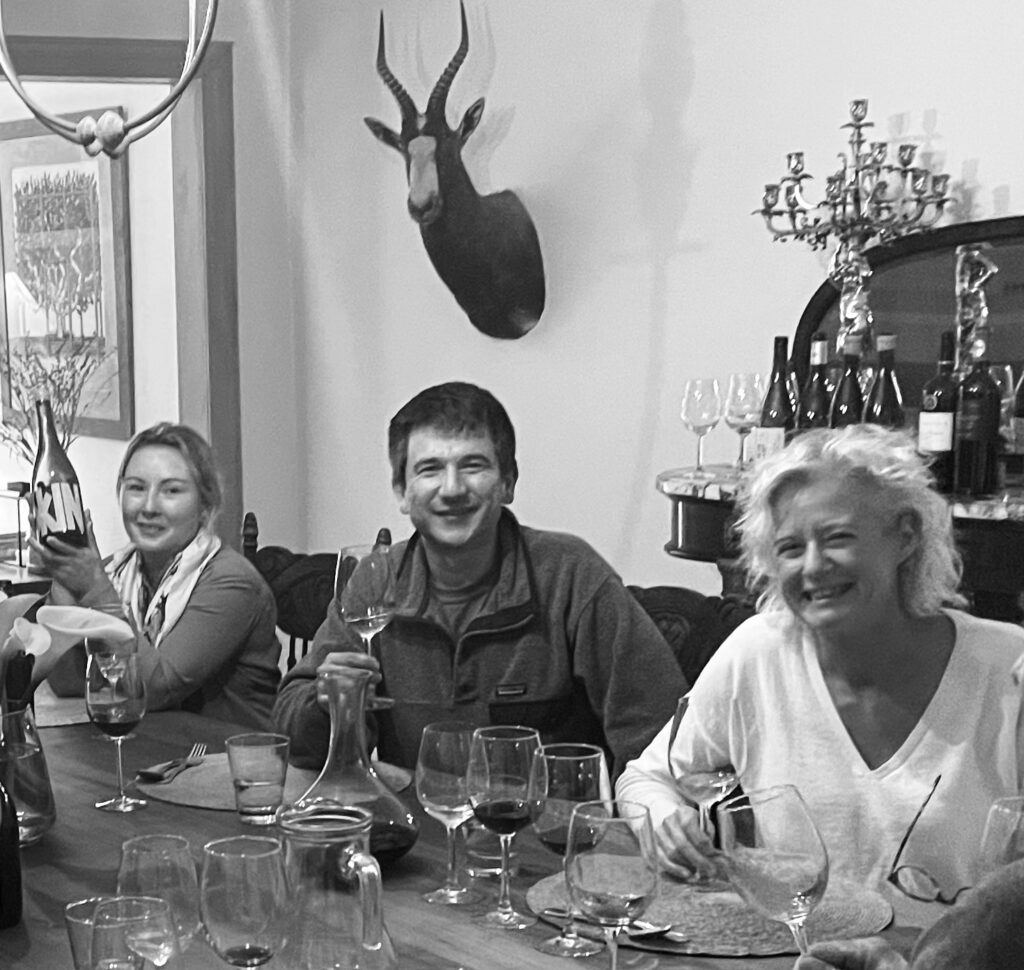
GARAGE WINES
Garage Wine Co Bagual Vineyard Garnacha 2018 – Lot 96 15% Alcohol. Grenache from a teeny tiny old parcel in Maule. Mouth-wateringly fresh, tangy and rich with a splendid array of succulent fruit – raspberries, pomegranate and redcurrants as well as moreish, good, firm tannins. Delicious 92
£30.25 Slurp
Garage Wine Co Old Vine Pale Rosado 2022 – Lot 123 13.5% Alcohol. 90% Old Vine Carignan and 10% Monastrell. This is the ultimate summer sup – supple, juicy and fresh with abundant lashings of strawberry, raspberry, cherry and pomegranate fruit. 92
£21.00 Vinum
Garage Wine Co Syrah Maule Valley Lot #108 2019 Truquilemu Vineyard 13.5% Alcohol. Crushed dried thyme, rosemary and rose petals with a hint of salty savoury black olive and sweet roast lamb. Tannins are fine-grained, impossibly moreish and elegant. 94
US stockists via wine-searcher.com
Garage Wine Co Sauzal Lot 95, Maule Valley, Chile 2018 14% Alcohol. 44% Grenache, 45% Carignan, 11% Monastrell. Firm, dark, fresh and delicious with cherry, raspberry, chocolate and peppery spice shot through with Cointreau and a hint of violets. 94
EU stockists via wine-searcher.com
Garage Wine Co Cabernet Sauvignon Renacido Vineyard Parcel Selection – Lot 124 2021 13.5% Alcohol. Intense and complex with crushed thyme and blackcurrant, sage, spice, chocolate nibs and saline. 94
£45.00 Vinum
